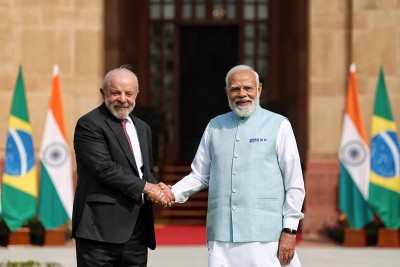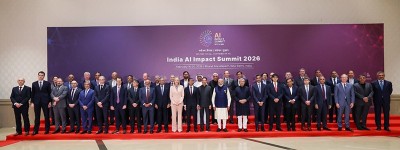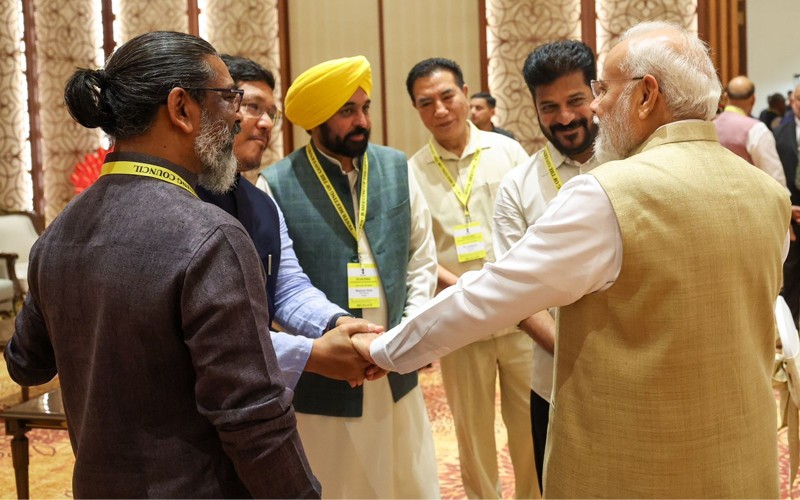
PM Modi meets Opposition CMs at NITI Aayog, discusses development goals amid funding demands and rare moments of camaraderie
New Delhi: Prime Minister Narendra Modi chaired the 10th Governing Council meeting of NITI Aayog in New Delhi on Saturday, where key Opposition chief ministers—Tamil Nadu’s M.K. Stalin, Punjab’s Bhagwant Mann, Telangana’s Revanth Reddy, and Jharkhand’s Hemant Soren—returned to the table after having boycotted the previous meeting in July 2024.
The gathering at Bharat Mandapam focused on how states could serve as “building blocks” in India’s goal of becoming a developed country.
In the last Governing Council meeting, all Opposition CMs except West Bengal’s Mamata Banerjee had stayed away in protest against the “discriminatory” Union Budget. Banerjee, the lone Opposition presence then, walked out mid-meeting, alleging she wasn’t given enough time to speak.
Rare interaction and photo-ops
Saturday’s meet was significant as it marked a rare public engagement between the Prime Minister and multiple Opposition leaders.
Visuals from the event showed PM Modi shaking hands with Revanth Reddy, while Hemant Soren and Bhagwant Mann stood nearby. Another image showed Modi sharing tea and conversation with M.K. Stalin and Andhra Pradesh Chief Minister Chandrababu Naidu.
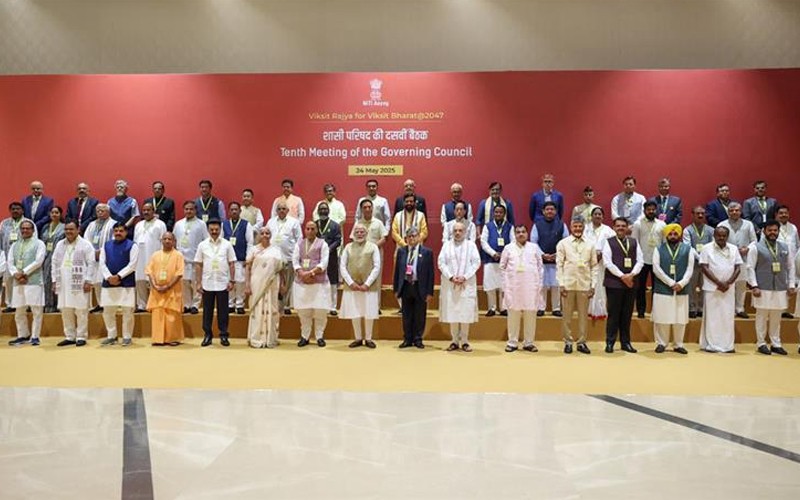 (Image credit: PIB)
(Image credit: PIB)
This was also the first significant gathering between the Prime Minister and several chief ministers following Operation Sindoor, a development that added further political weight to the occasion.
Call for 'Team India' spirit
Stressing the need for cooperative federalism, the Prime Minister said, “We have to increase the speed of development. If the Centre and all the States come together and work together like Team India, no goal is impossible," as quoted by NITI Aayog on X.
We have to increase the speed of development. If the Centre and all the States come together and work together like Team India, no goal is impossible: PM @narendramodi #PMOIndia #NITIAayog #10thGCM #10thGoverningCouncil@PMOIndia | @Rao_InderjitS | @MIB_India | @PIB_India |…
— NITI Aayog (@NITIAayog) May 24, 2025
The theme of this year’s meet—‘Viksit Rajya for Viksit Bharat @2047’—focused on developed states leading India to become a $30 trillion economy by the 100th year of Independence.
Opposition flags issues of resource sharing
Opposition CMs took the opportunity to raise issues related to the Centre-state dynamic, primarily around resource allocation. M.K. Stalin urged the Centre to end what he termed "discriminatory cooperation" and called for equitable treatment.
“It is not ideal for states in a federal democracy like India to struggle, argue, or litigate to receive the funds rightfully due to them. It hinders the development of both the state and the country,” Stalin said.
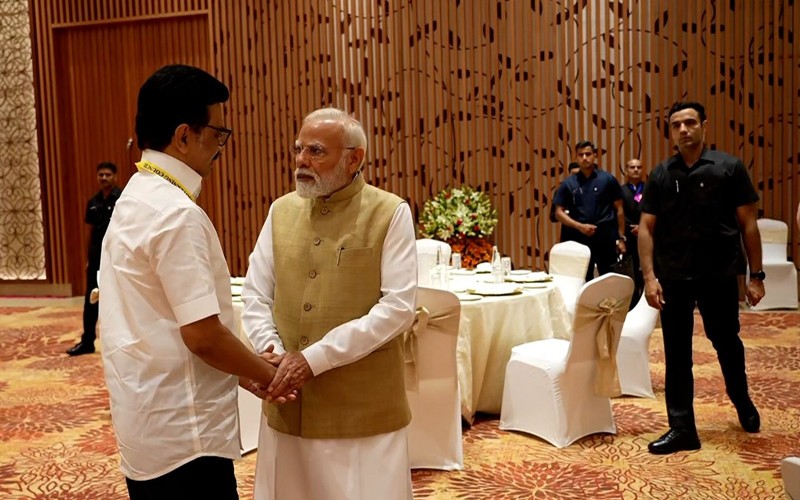 (Image credit: BJP media cell)
(Image credit: BJP media cell)
Stalin pointed out that while the 15th Finance Commission recommended 41% of divisible tax revenue be shared with states, the actual share over the last four years stood at just 33.16%.
“Meanwhile, the share of expenditure expected from state governments in centrally sponsored schemes continues to rise, which further strains the finances of states like Tamil Nadu. On the one hand, reduced tax devolution from the Union affects state finances. On the other hand, higher contributions required for central schemes impose additional burdens,” he said, urging the Centre to raise states’ share to 50%.
Despite the friction, he lauded PM Modi’s vision for a $30 trillion economy by 2047.
Punjab CM pitches water-sharing alternative
Punjab Chief Minister Bhagwant Mann raised the issue of water scarcity and the contentious Sutlej-Yamuna-Link (SYL) canal. Arguing that his state has no water to spare, Mann said a Yamuna-Sutlej-Link (YSL) canal should be considered instead.
He argued that Punjab's rivers—Ravi, Beas, and Sutlej—are already in deficit and that water should be diverted from surplus to deficit basins.
Mann also criticised the 1954 Yamuna pact, claiming it didn’t specify the irrigated area and failed to reflect Punjab’s rightful share. “Before the reorganisation, the Yamuna, like the Ravi and Beas, flowed through Punjab,” he said, adding that the 1972 Irrigation Commission report placed Punjab within the Yamuna basin.
Who stayed away
West Bengal’s Mamata Banerjee, Karnataka’s Siddaramaiah, Kerala’s Pinarayi Vijayan, Puducherry’s N. Rangasamy, and Bihar’s Nitish Kumar were among the key absentees from Saturday’s meeting.
Support Our Journalism
We cannot do without you.. your contribution supports unbiased journalism
IBNS is not driven by any ism- not wokeism, not racism, not skewed secularism, not hyper right-wing or left liberal ideals, nor by any hardline religious beliefs or hyper nationalism. We want to serve you good old objective news, as they are. We do not judge or preach. We let people decide for themselves. We only try to present factual and well-sourced news.





